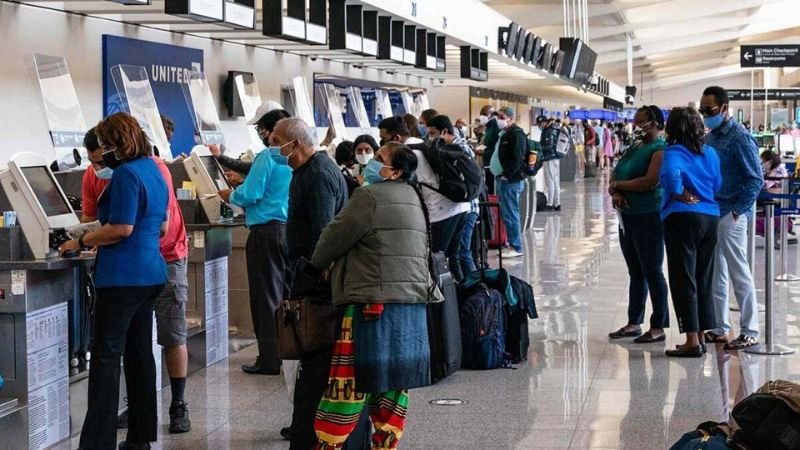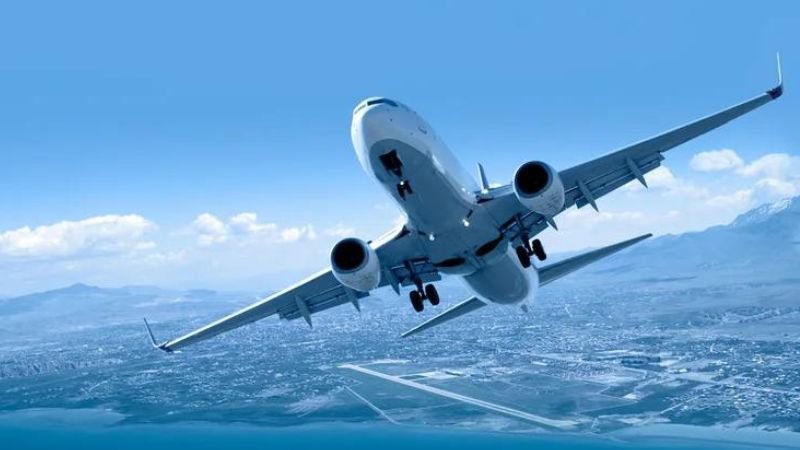Are you constantly hearing other people say that ‘Airlines Are Just Banks Now’ but do not know why precisely so? Do you want to find the reasons behind it? If so, you are on the right page, as we will discuss everything related to this matter here. Get to know why airlines are now seen as a financial body, along with travel. Readers will also get proper insights into its impacts on the passengers. Keep scrolling for more details.
Why Are Airlines Called Banks Now?
In today’s world, traveling by airplane is more than just going from one place to another. It involves more than that, even so, that the world has started calling them banks. Let us discuss why so many airlines have earned this status.
- The airlines earn points from intangible sources and distribute them to banks via partnerships involving co-branded credit cards. Banks and credit card companies profit from the transaction fees that the cardholders use for their expenditures.
- Individuals holding cards may use their points to obtain flights and additional products through airlines’ online portals.
- This system is exceptionally profitable for airlines since they do not bear any costs until the points are redeemed. In contrast, American consumers experience a more nuanced scenario. Although redeeming points may initially appear to be a benefit, it effectively acts as a subtle form of reimbursement due to the fees associated with credit card transactions.
- Individuals who do not possess credit cards often face elevated costs for products and services, indirectly supporting cardholders, who are generally more affluent.
Understand The Financial Benefits That Airlines Offer
In the last few years, many airlines have entered the financial sector by offering a range of facilities to passengers, which have become a significant part of their revenue. The information below gives you a clear idea of how the airlines make it happen. So, keep reading.
Co-Branded Credit Cards
Among the various financial services that airlines offer, the issuance of credit cards stands out as one of the most popular. These credit cards are frequently partnered with well-known financial institutions and offer a variety of benefits and rewards tailored to the airline. Passengers can get points or earn frequent flyer miles that can be used for discounts, flight upgrades, and other travel benefits.
These credit cards come with certain perks, such as entry to an airport lounge, preference during boarding, and travel insurance. Many credit cards also let you pay less when you book a hotel, rent a car, or make other expenditures related to travel activities.
Investment Services
Airlines are not just limited to a medium of transportation now, but rather a medium of investment. If you want to increase your wealth and protect your future financially, the airline offers a lot of financial services that include opportunities for investment and asset management, which are similar to services that banks offer. Many airlines have connections with top investment companies that provide passengers with various investment products such as managed portfolios, mutual funds, and retirement plans.
The airline provides these investment services to passengers to help them achieve their financial goals. Please note that these offerings provide customized recommendations from expert financial advisors who recognize airline customers’ specific requirements.
Personal Financing and Loan Opportunities
Along with credit cards and investment services, airlines also offer loans and other funding services If you are someone who is in urgent need of funds for travel-related spendings or any personal needs, you can very well take benefit of these financial services. Airlines capitalize on their robust brand image and the loyalty of their customers to present competitive interest rates along with flexible repayment alternatives.
The airlines make the borrowing experience convenient for a range of purposes, whether it is about covering unanticipated medical bills, funding a long-awaited holiday, and more. Through simplified application processes and swift approval durations, passengers can access the funds they need without the constraints of traditional banks or financial entities
How Does This System Affect Passengers?

Let us now discuss how this system of airlines earning money in various ways has an impact on the passengers. These details will be helpful for you if you are planning to go on an air travel or have a close friend who is flying soon.
- Having so many options for credit cards and frequent-flier programs, passengers get a variety of options to get benefits while flying, which saves a lot of money.
- There is an abundance of airline credit card offers in the marketplace. However, it is important to note that these offers often come with substantial fees and interest rates that may not be suitable for everyone.
- The implementation of loyalty programs motivates consumers to consistently choose one airline to optimize their rewards, which may inadvertently hinder individuals from seeking out better prices or services elsewhere..
- Due to the multitude of extra charges and the variability in ticket pricing, consumers often find it challenging to ascertain the most favorable deals on flights.
- Those who fly regularly and invest significantly in travel are the primary beneficiaries of loyalty programs, whereas infrequent travelers find themselves with limited rewards and benefits.
Frequently Asked Questions
Ever since the first loyalty program started in 1978, the airlines have become banks. In the US, you will notice advertisements on display machines in every airport requesting you to join a loyalty program.
Almost 60% of the revenue comes directly from the passengers, while the other 40% comes from the sale of frequent flyer miles to credit card companies and various travel partners.
Delta Airlines is the leading airline when evaluated by revenue, total assets, market capitalization, and brand value.
Airline miles are indeed worth it if you use them correctly. You should contemplate acquiring miles if the price is more appealing than the cash fare for a flight or if you lack a few thousand miles necessary for an award you wish to obtain.
Ticket sales are the prominent source of revenue for the airline industry, accounting for 70-80 percent of total earnings.
Airlines can choose to sell miles to banks that offer credit cards, or, for co-branded credit cards, they may arrange to share a percentage of the annual fees and card processing fees with the airline.
The airline and hotel rewards assessment shows substantial discrepancies among different rewards programs and booking specifics, with values fluctuating between roughly 0.4 cents and 3 cents per point or mile.
It is possible to acquire travel points without relying on a credit card by taking part in airline surveys or promotional offers, shopping at partner retailers, or arranging hotel stays and car rentals through the airline booking platforms.

